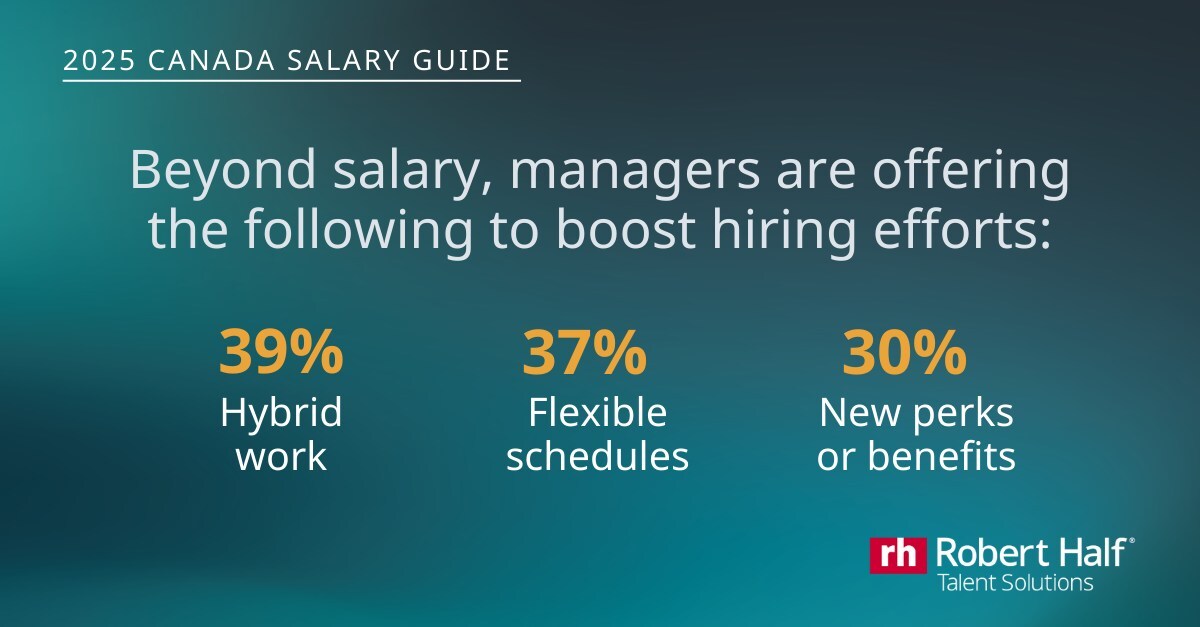Survey also looks at recruitment challenges, turnover trends

As artificial intelligence (AI) continues to make its way into the world of work, it is also impacting hiring practices among employers.
That’s according to Canadian managers, who report that AI is leading to a shift in high-demand skills (51 per cent).
“AI, machine learning and automation projects are high priorities for firms across Canada,” says Robert Half of its survey results. “Embracing continuous learning and focusing on skill-building efforts, while investing in employee training and fueling innovation is crucial.”
The survey also found AI is leading to a shift in:
- more contract workers or consultants (40 per cent)
- increased hiring (32 per cent)
- outsourcing of projects (29 per cent), according to the study.
Half of Canadian employers think workers are not prepared to use AI, according to a previous report from Deloitte.
Recruitment challenges for Canadian employers
One thing that AI is not changing is what workers want out of their employment.
Specifically, salary remains the top thing professionals want in a new job (60 per cent), according to the 2025 Canada Salary Guide From Robert Half, based on a survey of more than 1,750 workers and 1,800 managers with hiring responsibilities at companies with 20 or more employees in Canada conducted in June 2024.
About a third (32 per cent) of hiring managers say they are increasing starting salaries specifically to attract new hires.
Right now, more than nine in 10 professionals (92 per cent) are concerned about inflation outpacing salary growth, while 51 per cent report feeling underpaid. One-third of workers say they'll look for a new role if their employer does not raise their salary.
Canadian employers are expected to lower their overall salary increase budgets in 2025, according to a previous report.
“Employers who don't streamline their hiring processes and pick up the pace of hiring for crucial roles risk paying a price,” says Robert Half.
Longer hiring cycles lead to high turnover
Managers report long hiring cycles are leading to high turnover due to:
- heavy workloads (44 per cent)’
- higher recruitment costs (42 per cent)
- losing top candidates to competitors (40 per cent)
- delayed or cancelled projects (39 per cent).
The money issue is not the only challenge to employers’ hiring work: flexibility is also important. Over two in five (44 per cent) of workers prefer two to three days per week at the office, while employers would on average prefer their teams in office four days per week, says Robert Half.
However, employers know they need to offer flexibility to hire top talent; 32 per cent of workers who are looking for a new job say more flexibility is the main reason why.
However, just about a third of employers are offering the following:

Source: Robert Half
Other challenges facing employers include a lack of suitable succession candidates (42 per cent), insufficient upskilling programs (39 per cent), and having internal candidates uninterested in leadership roles (35 per cent).
“To counter this, many are focusing on upskilling employees, hiring and training high-potential candidates, and bringing in contract talent,” says Robert Half.




